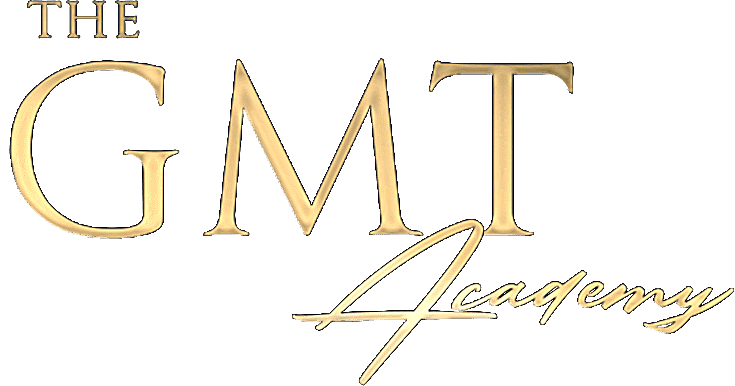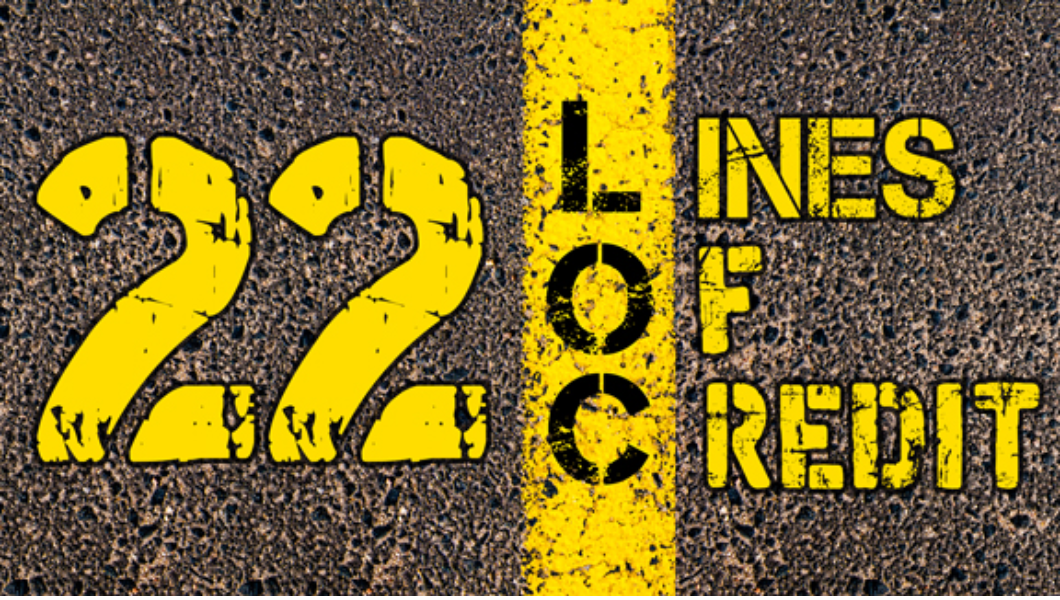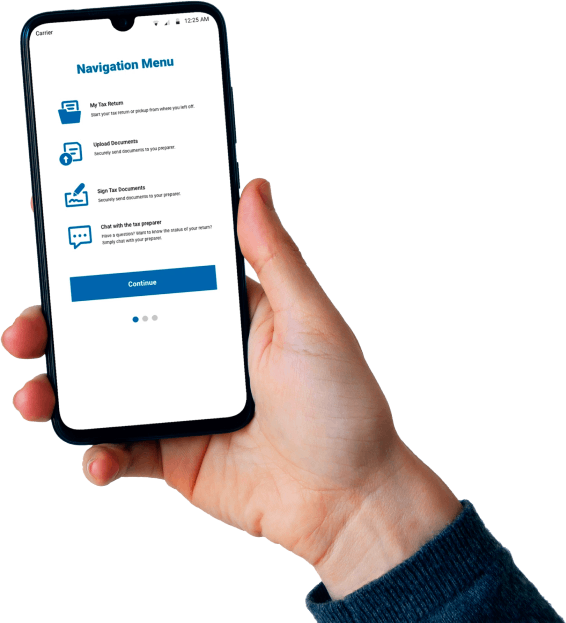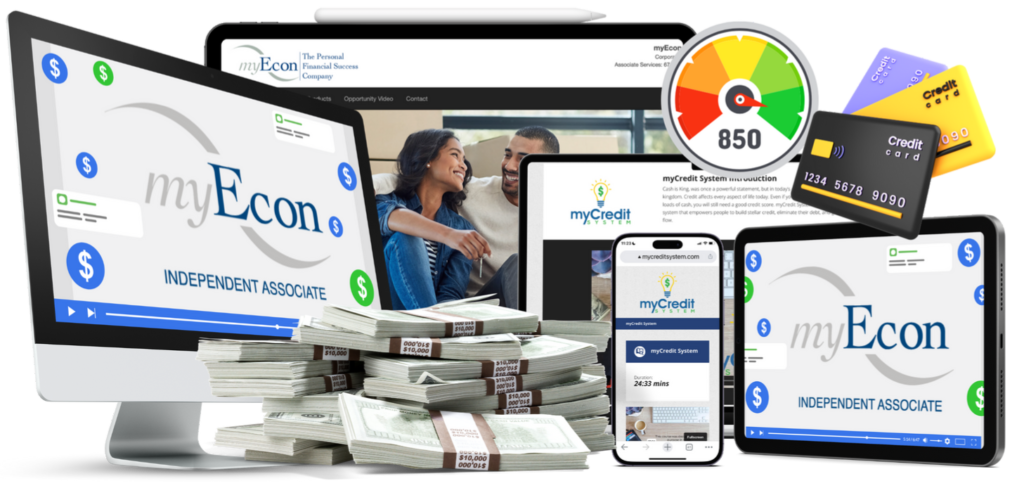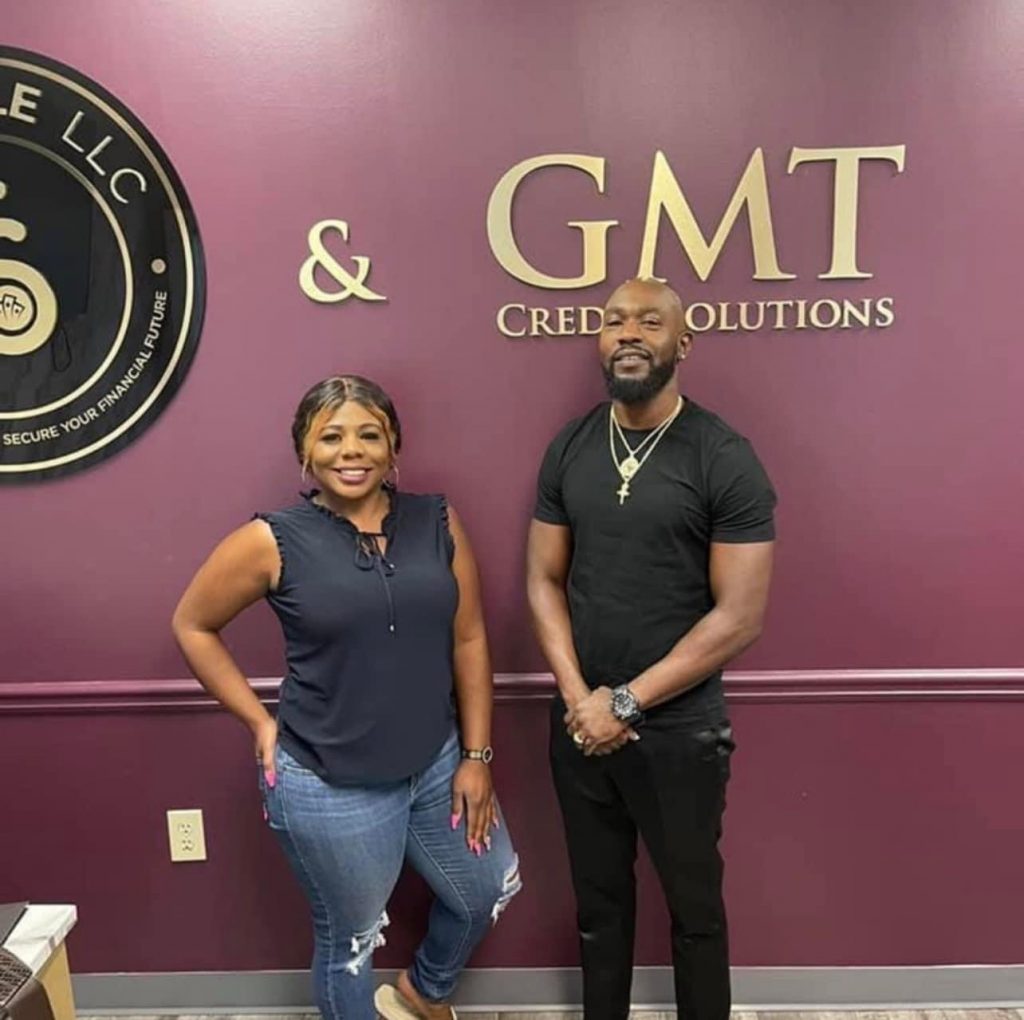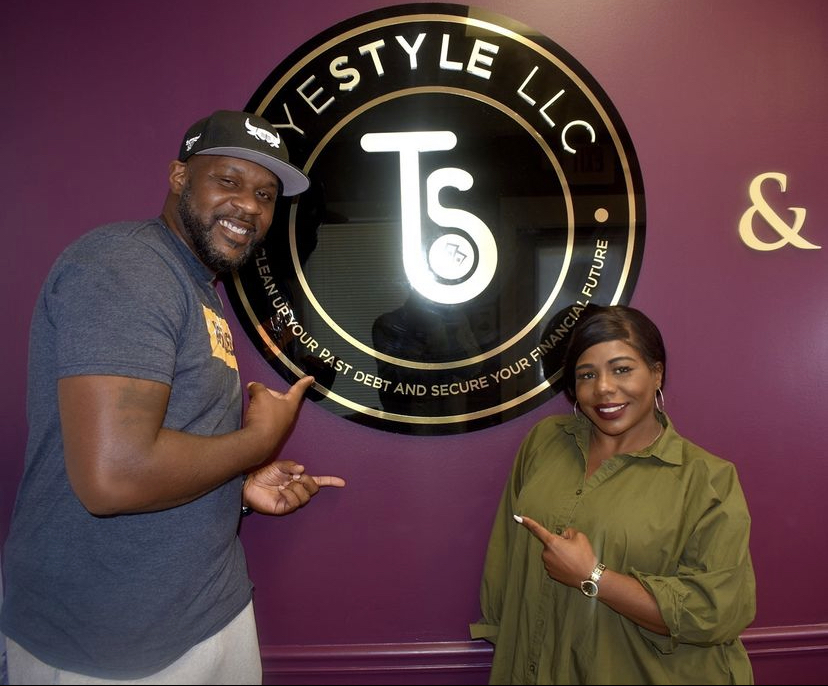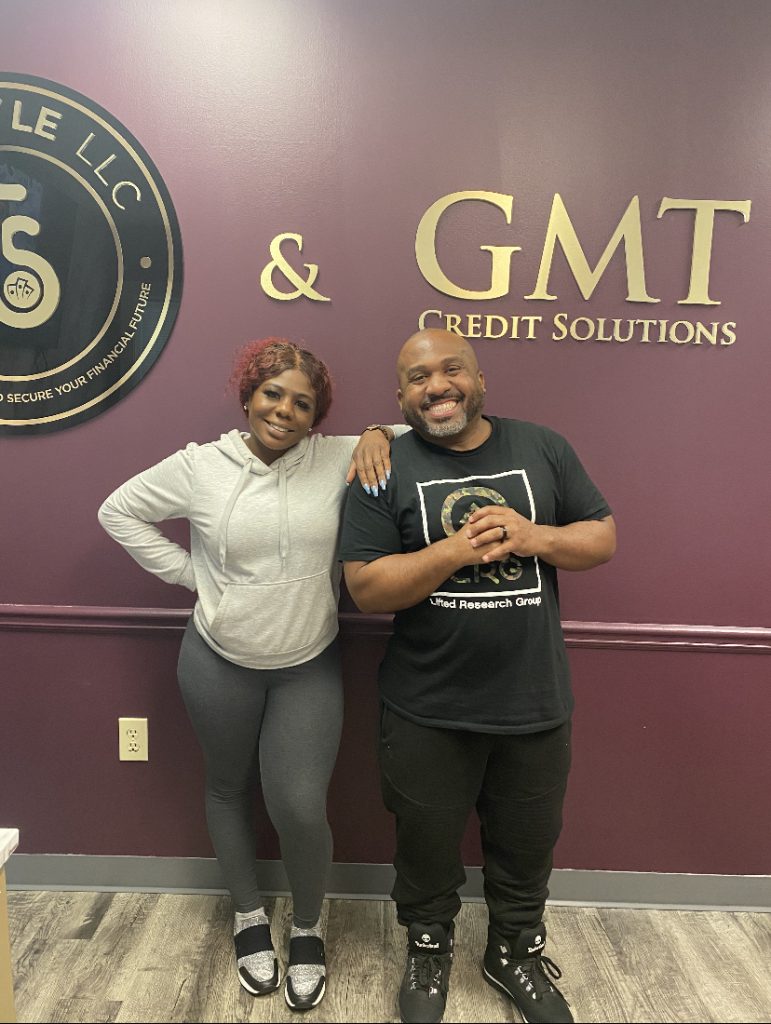➤ Need Funding or Building Your Business Credit? Click Here
➤ Need to Boost Your Credit Score? Click Here
➤ Connect with us on Facebook: The GMT Academy LLC
➤ Follow Us on Instagram: @TyeStyleCreditLady
In the modern business world, one of the major avenues used to build capital and open up opportunities for growth is applying for a business loan or business credit line. By using this option, a firm leverages their credit scores and financial reports, amongst other factors, with a credit issuer to explore whether they may be extended credit.
Within the world of loans and credit lines, there are many options you can choose as a business owner to fund your ventures. Whether it be to launch a startup or to make large ticket transactions and grow, below we explore the 22 main types of credit lines, their purposes and how best a business can successfully obtain these resources.
As such, it’s worth noting that conventional types of borrowing methods are typically not as useful for businesses to succeed.
*Need Funding or Building Your Business Credit? Click Here
*Need to Boost Your Credit Score? Click Here
*Connect with us on Facebook: TyeStyle Credit Solutions LLC
*Follow The Credit Lady on Instagram: @TyeStyleCreditLady
Conventional banks for example, are not a good place to look for startup loans. Usually, they require 2-3 years of tax returns before lending money, and if you’re lucky, you might get a single credit card to use. Over 89% of business applications are denied by big banks, and makes this a poor option for firms needing access to a reliable credit line.
SBA loans are tough to qualify for since the SBA will evaluate all aspects of the business and the owner for approval. This means all details within the business and owners’ personal finances must be near perfect to even get considered for approval. It’s also best to stay away from
Cash Flow Financing too, as they general want you in business for at least a year. They also usually demand over $10,000 in monthly deposits.
Private investors are also often problematic, as they also want to see 2-3 years of tax returns before lending money.
Venture capital isn’t a viable option unless your product or service is truly groundbreaking as a market disruptor. Venture capitalists also demand quick returns, plus a chunk of your business’s ownership.
Unsecured Financing
This option can provide some of the highest loan amounts for startups. You can get business credit with 0% interest rates with any stated income, and no financials are required. These types of credit lines report to the business reporting agencies, meaning you can simultaneously build good business credit while getting the financing you need. This will ultimately get you access to even more money without a personal guarantor.
With unsecured financing, you can usually get a loan of five times the amount of your highest current revolving credit limit account. This limit caps at $150,000. This option is the highest amount of financing you will typically see for startups, and is easily five times what you would get on your own when applying for cards. Cash is also an option with this type of credit line. While unsecured financing also has zero impact on your personal credit score, you need a score of 700 or a guarantor with good credit to get approval. With good personal credit, you can probably get unsecured credit cards with a personal guarantee. With good business credit, you can get unsecured credit cards without a personal guarantee.
Unsecured Credit Cards with Good Personal Credit
This unsecured financing option sees approval amounts from $10,000 to $150,000. While there is no consumer credit reporting, there is some business reporting involved. You usually need excellent personal credit with open revolving credit and low inquiry amounts, With this type of credit line, one will see approval amounts equal to current limits and APRs between 0-25%, with 0% for 6-18 months and a 9% success fee.
Unsecured Credit Cards with Good Business Credit
This type of unsecured credit line will see approval amounts from $10,000 to $50,000 and does report to business credit reporting agencies. It usually takes at least 6 months to build a solid credit profile for consideration, however personal credit is not used for pre-qualification. Approval amounts are also equal to current limits for this financing style, and usually holds 0-25% APR with 0% for 6-18 months.
The Types of Startup Business Loans
Startup Loans
There are also various types of business loans which startup firms and new companies can use to acquire capital, which do not come from banks. You could potentially get access to $25,000, $50,000 or even over $100,000 in initial funding. Startup loans help businesses to get specialized financing to buy things you need to get your business started. Equipment financing and leasing is available, for instance, to buy new equipment. You can also get loans to put up commercial signs, and those to get graphic wraps for vehicles!
Collateral-Based Loans
This type of credit line involves using your assets as collateral for capital. The rates for this financing type are often 5% or less, and personal credit rating does not matter. There are also four different types of collateral you can use: your 401(k), Stocks, Existing Inventory and Accounts Receivable. The other option is to ask a friend or family member who may have these kinds of assets, and who may be interested in letting you leverage their assets in exchange for a percentage of your company. This option usually involves the other party wanting less percentage of your firm than a venture capitalist would, and most times also involves 401(k) financing.
401(k) Financing
Using your 401(k) or IRA as collateral for business financing is one popular type of collateral-based loan. This program uses IRS proven strategies and involves no tax penalties as part of its functionality. You also still earn interest on your 401(k), and rates are often less than 5%. You can usually close this financing deal and begin funding in less than 3 weeks, and a business can usually get up to 100% of what’s “rollable” within your 401(k).
With a 401(k), one can often receive up to 200% financing. The steps are as follows:
- A new corporation is formed
- A retirement plan is created which allows for investment into the corporation
- Funds are rolled over into the new plan
- The new plan purchases stock in corporation and holds it
- Corporation becomes debt free and cash rich
Stocks and Securities-Based Financing
Using existing stocks as leverage to obtain business financing is another major collateral credit line. You can often borrow as much as 90% of the value of your stocks, and can continue to earn interest on those stocks pledged as collateral. Closing deals and starting funding can also take less than 3 weeks, just like 401(k) financing.
When choosing to leverage stocks, one can usually see a 70-90% Loan to value. Rates are sometimes as low as 1.6%. Stocks act as a working capital line of credit, and also challenge a business owner’s personal credit.
Accounts Receivable Financing
Businesses can also use their outstanding accounts receivable as a financing option. Credit lines stemming from this can get as much as 80% of receivables advanced ongoing in less than 24 hours, which makes it a quick and easy option for fast cash. The remainder of the accounts receivable is then released once the invoice is paid in full. Closing these transactions can take 2 weeks or less, and involve factor rates as low as 1.33%. Accounts receivable credit lines can sometimes see interest rates of less than 1% with no consumer credit requirement.
Accounts receivable being opted for financing should be done with the government or another business. Also, if you have purchase orders, you can get financing to get those filled. You won’t need to us your cash flow to do this, either. In order to opt for this credit line, however, you have to have been in business for a minimum of one year. Rates are, on average, between 1.25% and 5%.
Inventory Financing
This type of business credit line uses existing inventory as collateral for business financing. Generally, you will want total inventory valued at $500,000 or more to obtain solid inventory financing. Usually, approval will result in a line of credit for 50% of inventory value, with rates varying from 5-15% depending on the type of inventory. Funding is usually available within 3 weeks or less.
The minimum inventory loan amount taken must be no less than $150,000 and the general loan to value cost is around 50%. This would mean your inventory value would have to be at least $300,000 or more to achieve financing. Qualifying inventory considered also cannot be lumped together—such as office equipment,.
Equipment Financing
Financing to Buy or Lease Equipment
Equipment financing credit lines are utilized when a business needs capital to buy or lease new equipment for company needs. In order to apply, you must use our first and last month’s payments to be approved. Rates can vary widely based on various risk factors. A business opting for equipment financing can see approval with credit as low as 650+.
It is important to note—when choosing equipment financing credit lines, the lender will undervalue equipment by possibly up to 50%. This is only for major equipment categories. Lenders typically won’t combine a lot of small equipment to qualify. Loans can be seen valued up to $2 million.
Equipment Sale-Leaseback
If you already own your equipment in full, you can also use that as collateral for financing. Essentially, you sell the equipment to a lender for cash. You then lease it back from them over time. You need at least one larger piece of higher value equipment to qualify, and when approved a business can see funding in as little as 3 weeks.
Other Collateral
Investors who are looking to buy and flip properties and who also have cash, experience and average credit can also obtain financing. This takes the form of financing against commercial real estate. Insurance agents, on the other hand, can get book of business financing.
Business Credit
This type of credit line is linked to your EIN and not your SSN. Business credit is available without a personal guarantee and regardless of personal credit. Firms can often obtain business credit immediately, even as a startup.
Vendor Credit
When choosing to finance through vendor credit, it’s recommended to work with vendors you use all the time. You can get credit for regular purchases, such as day-to-day items like supplies and coffee. These vendors report to the business reporting agencies within 60 days, and as such, can help build your business credit profile and score.
Store Credit
After 60 days from qualifying for vendor credit, a business can obtain higher-limit solving store accounts valued anywhere from $2,500 to $10,000. These are usually at major stores like Dell, amazon, Walmart, BP, Chevron, Best Buy, and many others. As you continue to apply, you’ll get even more credit lines at other stories with higher limits. You can use this capital to buy the things you need to fund and grow your business.
Fleet Credit
After obtaining a total of 10 store credit accounts, you can start to get fleet credit. This financing type deals with higher limits which can be used at a multitude of sources.
It’s important to note—Business Credit is the only way to get money for your company if you don’t have:
- Collateral
- Cash flow
- Good personal credit
- A Guarantor
The benefits of business credit are valuable. Although anyone can pull your business credit reports, it’s almost essential to have business credit lines. They are necessary to qualify for loans. Business credit lines can also help firms get high limit accounts quickly, without the requirement of personal guarantees or credit checks. This is actually one of the fastest ways of getting money besides immediate cash funding.
Crowdfunding
Crowdfunding as a financial resource works best when donors can personally connect with your product or service. Apart from an IndieGoGo flexible funding option, all other platforms give you $0 if you don’t meet your goal. All crowdfunding platforms also take a percentage of total funds earned. Therefore, these platforms help push you to deliver on your product or service.
A few key points to keep in mind when opting for crowdfunding for capital: donors can get ‘donor fatigue’ easily, and so maintaining a solid, well-written pitch which is also eye-catching is essential. Managing a crowdfunding campaign can actually be a full-time job!
Crowdfunding works best when you line up your biggest investors beforehand and get them to donate on the first or last days of the campaign. You will also need to provide perks or rewards for tiers/donation levels. Virtual perks, like downloads, are easier to manage than physical perks.
More Startup Loans
Other forms of credit lines for startup businesses include:
First Round Capital, for investments in the millions
Jumpstart Foundry, with financing up to $15,000
AngelPad, for web and technology entrepreneurs
Beatspring, for up to $20,000 in startup funding
Launch, which offers $500,000 per competition
Check with your alma mater, they may be able to offer you something as far as financing or loans
SBA Startup Loans
The most popular SBA loan for working capital is the 7(a). In order to qualify for an SBA loan, you usually need to show that you have been active for some time in business. Businesses who get approved can see funding up to $750,000, with rates usually 2-4% above prime rate. All owners with more than 20% ownership must also provide a personal guarantee. Note that good consumer credit is required for SBA credit lines. Low documentation programs are also available when needed.
SBA Express is another faster way to secure an SBA loan. One can get loan amounts up to $250,000 with rates also ranging from 2-4% above prime rate. Community Express is available for low and moderate income entrepreneurs.
SBA 504 is the SBA’s second most popular loan type. This financing option is used to purchase land, equipment or real estate. The bank funds the loan, and the SBA generally guarantees up to 40%. Businesses can usually land loans up to $1 million, but you must typically contribute 10% of the equity.
7(m) is the SBA’s Microloan program, with loans up to $35,000 for working capital and growth. Average loan amounts are about $10,000 with funds coming directly from the SBA for 7(m). This is unlike the 7(a), where funds come from the bank.
Private Equity Lines of Credit
Using private equity for funding can often see funding amounts as much as $250,000, $500,000 and up to $1 millions. This option holds an 8% rate and requires 20% liquid capital to qualify. One can also use funds from other funding sources. A mid 600 credit score is required, along with your tax returns for the last couple of years.
House Reseller Financing
In order to venture into house reselling as a credit option, you must have a minimum of a 660+ FICO score and house flipping experience. You also need cash on hand to put into an escrow account. Your business can usually get up to 65% of the after-repaired value of the house. The rate is 8% or so, involving a 6-month term.
Book of Business Financing
By using book of business to finance, your commissions from the book of business will serve as collateral for capital. You can borrow 2-3 times annually with renewal commissions. Note this is a long term loan for financing needs.
Federal Grants
Just like scholarships for school, federal grants generally do not have to be paid back. For urban projects, a good resource is HUD or Housing and Urban Development. For rural projects, the USDA (Department of Agriculture) is a viable option. Federal funding also involves extensive paperwork—and it’s crucial to completely and correctly fill out all requested information to be considered at all. Generally, you also have to show experience in what you are proposing to be extended credit lines.
State and Local Grants
Your local government also offers grants. These are generally less restrictive than federal grants. Obtaining state and local grants also show you will be helping the community, so it’s best to partner with a local business for optimal result.
Startup financing is key to any business’s goals for success. As a business owner, your startup is your dream. However, cultivating and nurturing a new project requires money to help keep it going and to survive. We recommend kickstarting that momentous process with credit lines and unsecured loans to help fuel your vision. At TyeStyle Credit Solutions, we have years of experience in helping startups and small businesses achieve financing and obtain various credit lines. Speak to us today to see how we could push your business in front of multitude of lenders, and help you quickly qualify for the funding you need!
